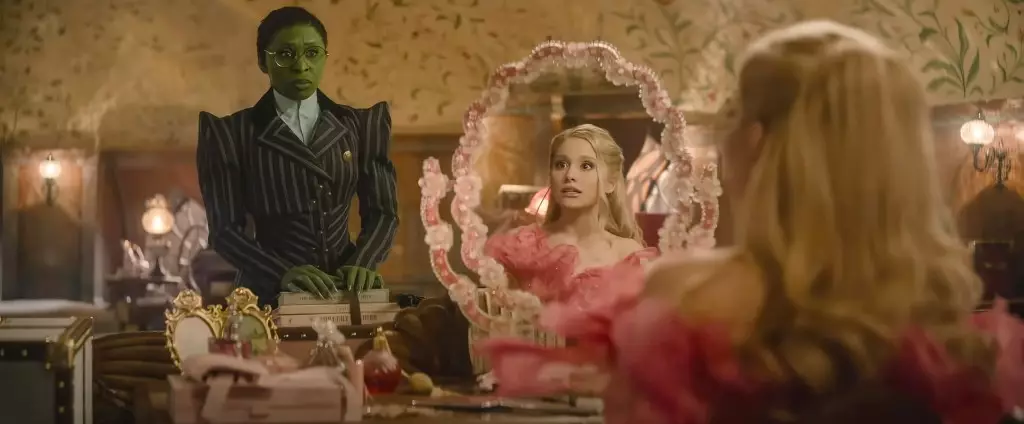The announcement of the musical acts for the 97th Annual Academy Awards has sparked excitement and intrigue among film and music fans alike. Artists such as Doja Cat, Cynthia Erivo, Ariana Grande, LISA from Blackpink, Queen Latifah, and RAYE are set to grace the stage with their unique sounds and performances. This marks a notable shift in the type of musical talent typically showcased at the Oscars, as the chosen performers represent a cross-section of contemporary music that appeals to a younger demographic. Their participation is being touted as “showstopping,” aimed at celebrating the filmmaking community in a way that resonates with modern audiences.
Among the performers, the presence of Cynthia Erivo and Ariana Grande—two stars from the acclaimed musical adaptation of “Wicked”—has stirred a wave of speculation. Although their performance is rumored to be one of the highlights, details surrounding the songs they will perform remain unconfirmed. The “Wicked” phenomenon is undeniably prevalent in popular culture, especially following its rise as the highest-grossing Broadway musical adaptation in the film arena today. Nevertheless, there lies a peculiar contradiction: while the movie enjoys monumental success, it contains no original songs that qualify for the Best Song category at the Oscars. Instead, it’s competing for accolades for its original score, composed by John Powell and Steven Schwartz. This juxtaposition raises questions about how musicals are integrated into awards shows and the broader implications for future film adaptations of stage productions.
In an unexpected twist, the Academy of Motion Picture Arts and Sciences (AMPAS) stirred the pot earlier this awards season by announcing that none of the five nominated songs would be performed live during the ceremony. This decision alienated some members of the music community, including high-profile nominees such as Elton John and 16-time nominee Diane Warren. The Oscars have traditionally offered a platform for these celebrated songwriters and performers, raising eyebrows over the producers’ choice to steer away from showcasing nominated tracks.
Yet, the focus on a more varied lineup suggests a strategy to attract a diverse audience. The inclusion of artists like Doja Cat and LISA, who thrive in genres such as pop and hip-hop, gives the Oscars a contemporary flair reminiscent of the Grammy Awards. The involvement of Raj Kapoor, a producer from the recent Grammy show, reinforces this crossover, suggesting a deliberate intention to invigorate the Oscars’ musical landscape.
As the Oscars continue to grapple with their identity in a rapidly evolving entertainment landscape, the choices made this year may set a precedent for future ceremonies. Integrating a broader array of musical talent not only highlights the changing tastes of today’s viewers but also reflects an essential adaptability within the Academy itself. By embracing a lineup that mirrors the current musical scene, the Oscars aim not only to remain relevant but also to foster a sense of inclusion and connectivity with a younger generation.
This evolution could also mean a shift in how musicals are approached in Hollywood, particularly as adaptations of stage productions grow increasingly popular. Will future Academy Awards continue to feature performances that stray from traditional elements? Will we see more prominent representation of diverse genres in recognition of the rich tapestry of modern music? These are questions the Academy will need to answer as they seek to balance tradition with innovation.
Scheduled to air on March 2, 2025, with Conan O’Brien at the helm as host, the 97th Academy Awards promises a fresh perspective away from past conventions. As fans gear up for the live ceremony on ABC and streaming platforms, the anticipation for a unique blend of music and cinema grows. The red carpet arrivals, set to precede the main event, will likely further set the tone for a night filled with éclat.
The 97th Annual Academy Awards presents a crossroads where traditional expectations meet contemporary innovation. The musical lineup serves as a testament to the evolving tastes of audiences and highlights the Academy’s efforts to remain a relevant player in the entertainment industry. As the Oscars continue to navigate this landscape, it will be interesting to see how these dynamics unfold and whether they signal a permanent shift in the Academy’s approach going forward.

